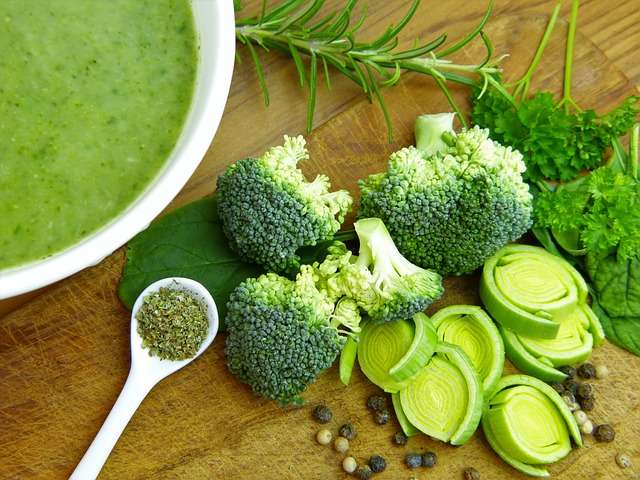Image Credit Pixabay
For individuals with diabetes in India, it's important to focus on a balanced and nutritious diet to help manage blood sugar levels. Here are some general guidelines for breakfast, lunch, and dinner.
Breakfast:
- Vegetable Omelette:
- Include onions, tomatoes, bell peppers, and spinach.
- Cook in a small amount of healthy oil, such as olive oil.
- Whole Grain Cereal or Porridge:
- Choose whole grains like oats or millets.
- Top with fresh fruits like berries or a small amount of nuts.
- Idli or Dosa:
- Preferably made with whole grain or multigrain batter.
- Accompany with sambhar (vegetable stew) and coconut chutney.
- Greek Yogurt with Berries:
- Choose plain, unsweetened Greek yogurt.
- Add a handful of berries for natural sweetness.
Lunch:
- Brown Rice or Quinoa:
- Use whole grains as the base for your meal.
- Limit portions to control carbohydrate intake.
- Dal (Lentils) or Legumes:
- Lentils or legumes provide protein and fiber.
- Include a variety like chickpeas or black lentils.
- Vegetable Curry:
- Use a mix of colorful and non-starchy vegetables.
- Cook with minimal oil and spices.
- Roti or Whole Wheat Chapati:
- Choose whole wheat or multigrain options.
- Keep portions moderate.
- Salad:
- Include a fresh salad with cucumber, tomatoes, and leafy greens.
Dinner:
- Grilled or Baked Fish or Chicken:
- Lean protein sources can be part of your dinner.
- Use minimal oil and season with herbs and spices.
- Saag (Spinach) or Methi (Fenugreek) Roti:
- Include green leafy vegetables in your roti.
- Opt for whole wheat or multigrain varieties.
- Mixed Vegetable Sabzi:
- Prepare a mix of low-carb vegetables like cauliflower, broccoli, and bell peppers.
- Cauliflower Rice:
- A low-carb alternative to traditional rice.
- Raita:
- Prepare a cucumber or mint raita using low-fat yogurt.
Snacks (if needed):
- Nuts and Seeds:
- Almonds, walnuts, and flaxseeds are good choices.
- Consume in moderation due to their calorie content.
- Vegetable Sticks with Hummus:
- Enjoy cucumber, carrot, and bell pepper sticks with hummus.
- Chana Chaat:
- Chickpea salad with onions, tomatoes, and spices.
Remember to monitor portion sizes, choose whole foods, and consider the glycemic index of the foods you consume. It's also crucial to consult with a healthcare professional or a registered dietitian to create a personalized meal plan based on your specific dietary needs and health goals.
News, Health, Travel & Entertainment Telegram Channel Click to Join Infimor
KK
